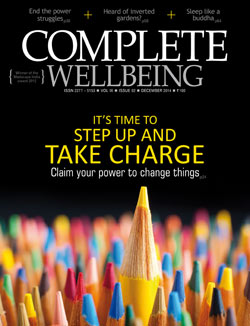
Open the newspaper and you find it all over. Turn on the 9 o’clock news, and there it is again. Log on to social networking sites and once again you find it in all its pervasive glory. The ‘it’ that I refer to is our collective tendency of blaming and pointing fingers at others. From politicians to journalists, to the common man on the street—we have become experts at complaining about the state of our affairs. All we do is react, blame and wait for someone else to take the initiative. This is not just a social phenomenon—passively blaming others is a disease that afflicts our workplaces, our communities, our homes and our relationships. Wherever two or more people assemble, there is high likelihood that sooner or later, you will also find blame being cast, unless someone takes responsibility.
The word ‘responsibility’ seems loaded and for many of us it has a negative connotation, implying burden. Responsibility however, is only a burden for passive people, who have lost their ability to respond to life—which is what the word responsibility literally means: the ability to respond.
In his play Mrs. Warren’s Profession, George Bernard Shaw said, “People are always blaming their circumstances for what they are. I don’t believe in circumstances. The people who get on in this world are the people who get up and look for the circumstances they want, and, if they can’t find them, make them.” Shaw is describing his ability to respond to his circumstances.
Like Shaw, we too can take responsibility of our lives and our world, and helping us get started is bestselling author John Izzo in this month’s cover story, Step Up and Take Charge.
Izzo tells us that when even one of us takes responsibility, stepping up to do what we can, everything gets better: our marriages, our careers, our lives, our companies, and our world. Life becomes more fun and more rewarding. “Seeing ourselves as responsible and powerful to change things is a game changer in the deepest sense,” Izzo says. Using examples of real people in real situations, he convinces us of the power of one individual to effect real change.
“With great power comes great responsibility,” says Peter Parker in Spiderman. It’s a profound thought. But the reverse is also equally true: with great responsibility comes great power—the power to change our lives and our world and make it a little bit better.
Let’s begin with the one we see in the mirror.

